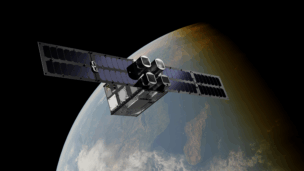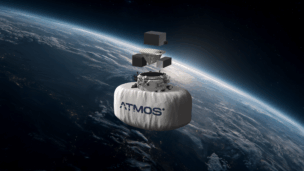The UK wants to build a vibrant sovereign space industry, but it knows it can’t do it alone.
This week, the UK Space Agency (UKSA) announced it will invest a total of £6.5M ($8.8M) to support 23 partnerships between UK and international space organizations as part of the second round of awards from the space agency’s International Bilateral Fund (IBF). It includes partnerships with organizations in Australia, Canada, France, Germany, India, Japan, Lithuania, and the US.
Telegraphing wins: Two UK startups—Lodestar and Lúnasa—received two awards each, showing that defense and in-space satellite servicing capabilities are at the forefront of the UK’s long-term vision for its space sector.
Lodestar, the UK startup building in-space bodyguard technology, secured two IBF awards to develop and demonstrate its dual-use sensor and RPO capabilities.
- Lodestar partnered with US-based Impulse Space on a £363,000 ($489,00) project to perform a ground-based demo of Lodestar’s Mithril machine vision and edge-compute platform on Impulse’s Mira satellite bus.
- The startup also teamed up with Germany’s The Exploration Company (TEC) on a £366,000 ($493,000) project to develop its sensor suite for TEC’s Nyx spacecraft, opening the door for future missions to the ISS.
Lúnasa also won a total of £759,000 ($1M) in funding for two projects that will push the UK’s capabilities on in-orbit servicing. Lúnasa has partnered with Australia’s Space Machines Company and France’s Infinite Orbits, to integrate the UK startup’s RPO capabilities.
Attracting funds: While the explicit aim of the IBF is to develop UK technologies and deepen the state’s relationship with international space organizations, it could also help attract more private funding.
“When the International Bilateral Funding came out, we both [Lodestar and Impulse] jumped on it immediately,” Lodestar cofounder and CTO Thomas Santini told Payload. “As a company, we want to try and cross the valley of death and prove out the R&D on our own dollars…[but] this is a perfect way to de-risk some…initial integration.”



